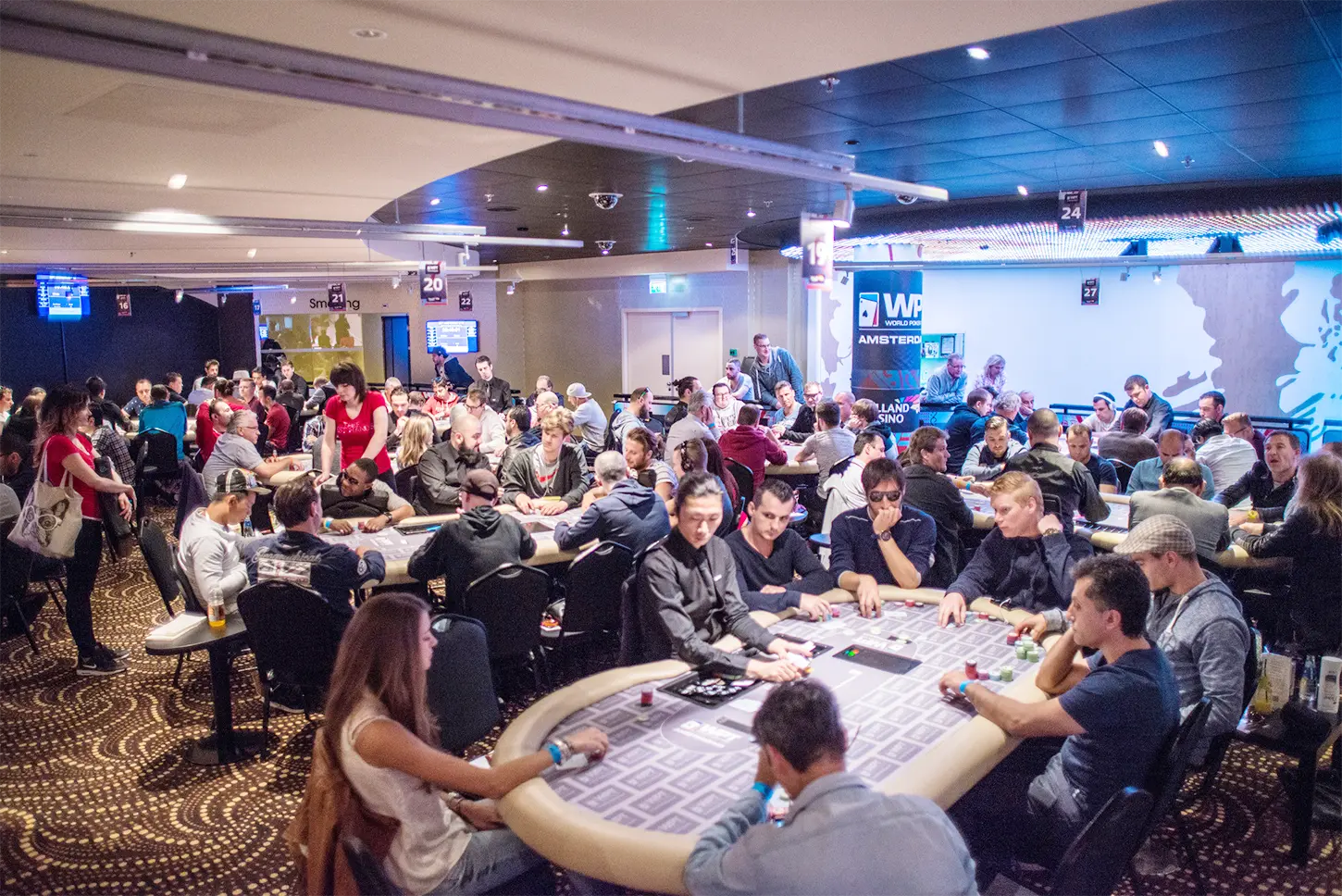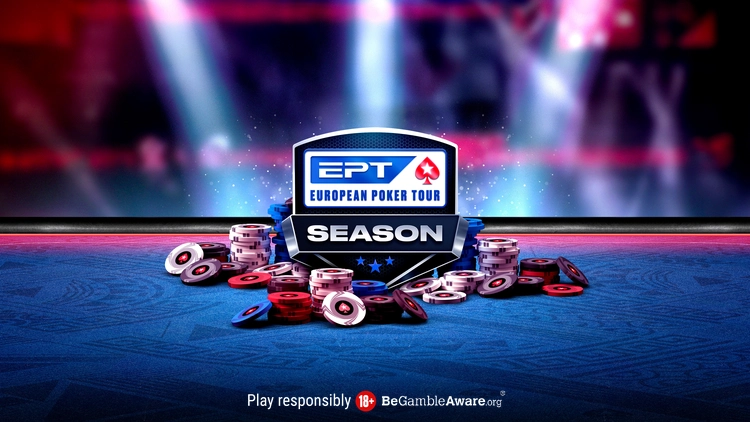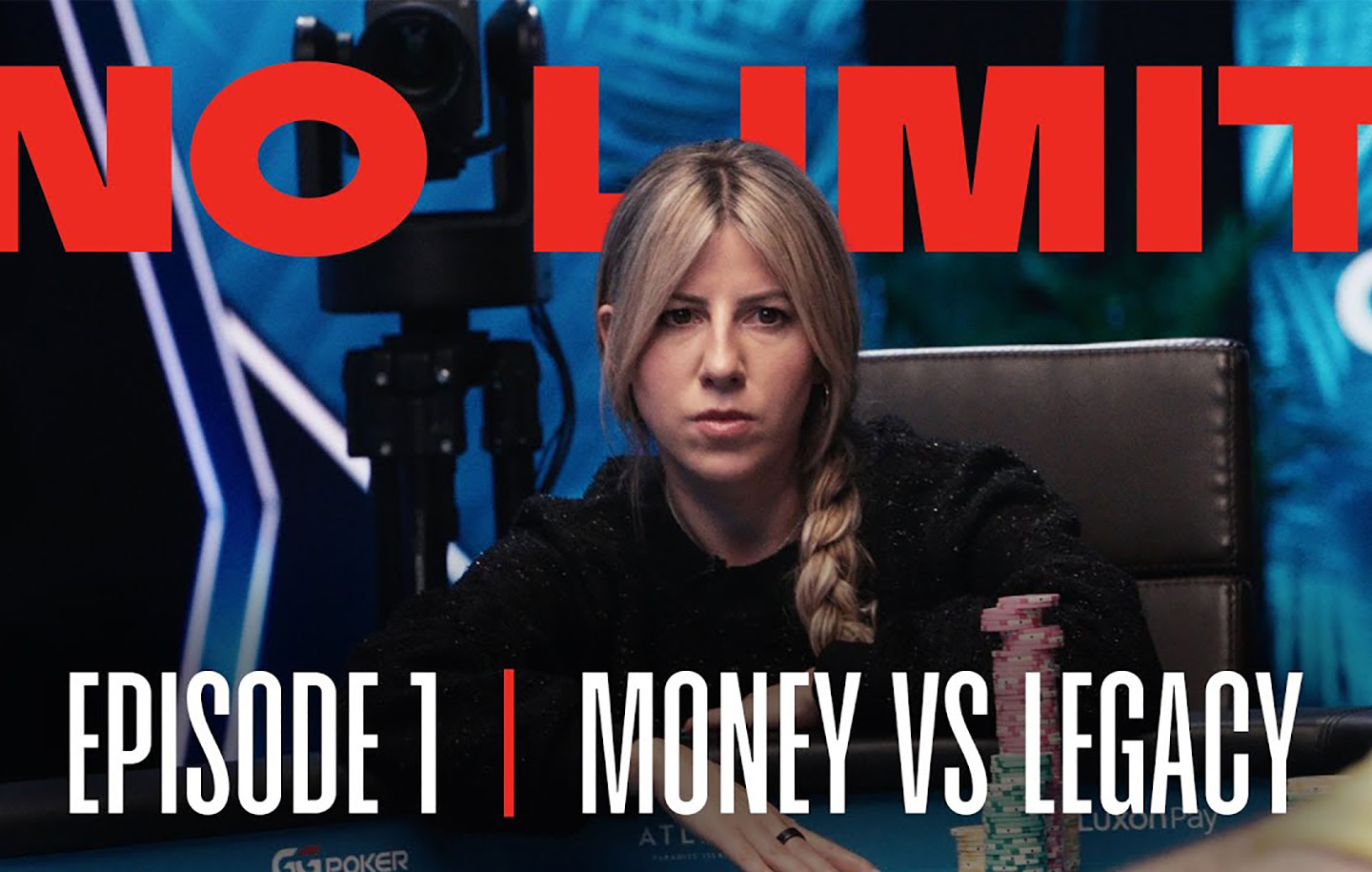How Green is Poker? The Inconvenient Truth of the Poker Industry

- Fact Checked by: PokerListings
- Last updated on: July 2, 2025 · 7 minutes to read
Poker and the environment. Two words seemingly so far removed it’s hard to imagine them even used in the same sentence.
With the upcoming Climate Change Conference in Copenhagen next week, the topic of the environment has never been hotter in poker rooms.
That’s a relatively speaking “hotter.” But still.
The common assumption is that poker players know how to protect a stack of chips and think of little else, let alone the environment.
In most cases, that may be not far from the truth. But should it be?
With the growing threat of global warming and climate change poker players are not exempt from having to care about the environmental consequences of their actions.
And if you’ve ever been around a major poker tournament you know the poker community has room to move when it comes to reducing its environmental impact.
The Big Picture
With hundreds of major tournaments around the world the poker industry is a prominent offender when it comes to greenhouse gas emissions.
Perhaps no more than any other travel or sports industry, but between flights, rental cars and straight-up energy consumption in casinos around the world, it’s safe to say there’s a surprising volume of negative environmental issues involved with simply playing cards.
Poker tournaments generate a large amount of waste. Disposable plates, food wrappers, cigarette butts, soda and water bottles are just the beginning.
Combine this with a lack of proper recycling programs in Las Vegas and most casinos around the world and the landfills get a little larger with every one.
Of course, bringing a few thousand people to one location for any big event will likely create a similar amount of waste.
But that’s no excuse for poker players, according to Kristen Ostling, Communications Specialist in Climate Change for the world-renowned David Suzuki Foundation.
“This is the way of the future and not just for individuals,” said Ostling. “Businesses, organizations and individuals should all be looking at ways to reduce their carbon output.
“It’s also good for the bottom line in terms of dollars in most cases.”
Airline Travel Required
Airline flights are among the fastest-growing sources of global warming gases and air travel is a necessary evil on the world’s live poker tours.
EPT Prague drew 555 players in 2007 but fewer than 20 actually resided in the Czech Republic.
Even if every player were to fly from relatively close Barcelona, Spain to the event, almost 150 tons of carbon dioxide would be created.
Long-haul flights are one of the worst violators in terms of carbon emissions and a trip to Melbourne, Australia from North America for the Aussie Millions could conceivably use up an entire year of sustainable per-person emissions in just one flight.
“From a green perspective it’s good to do things online, but obviously sometimes you can’t beat face-to-face interaction,” Ostling said.
“The first thing a business has to do is make an assessment of what kind of environmental impact they are having.”
One suggestion Ostling has for the jet-setting poker player is to buy carbon offsets to lessen the impact.
A carbon offset is essentially a certificate that represents a reduction of carbon emissions. Concerned individuals can buy a wide-variety of carbon offsets ranging from solar-power generators in India to reforestation or tree-planting in Ecuador.
Organizations like the World Wildlife Fund and the David Suzuki Foundation offer comprehensive guides on buying carbon offsets and buying enough could make it possible for even a well-travelled poker pro to achieve carbon neutrality.
The View from the Poker Industry
It’s impossible to consider the environmental impact of the poker industry and not start with Las Vegas.
Vegas is the Mecca of the poker world and a flashy, 24-hour city in the desert is obviously a hard sell when it comes to environmental sustainability.
A number of studies have ranked Nevada near the bottom of environmentally conscious states, and water consumption always seems to be a hot topic.
In 2008, environmental blog Treehugger ran a story claiming the Las Vegas strip could run dry by 2021 citing a recent study by the Scripps Institution of Oceanography estimating there is a 50% chance the city will run out of water if no significant cutbacks are made.
Combine water consumption with the sheer amount of electricity it takes to run the Strip and you’re looking at a city that’s universally frowned upon by environmentalists.
Despite the bad reputation, there have been some efforts in Las Vegas to go greener.
In 2009, Harrah’s announced it was joining Dell, Starbucks and Wrigley as founding members of the Team Earth initiative aiming to unite businesses, non-profits, scientists, educators and individuals to address pressing environmental issues.
In 2008, Harrah’s also began offering carbon offsets to its customers to help reduce the environmental impact of taking a Las Vegas vacation.
Plus, the massive 16,797,000-square-foot CityCenter development, set to finally open its doors this winter, appears to be going green.
Despite the considerable environmental impact of such a large casino, hotel, retail and residential project, the development was recently given a gold rating by the Leadership in Energy and Environmental Design rating system developed by the U.S. Green Building Council.
CityCenter will use reclaimed water, an onsite power plant and other green technologies that are estimated to save the equivalent of 7,700 homes worth of energy, making it one of the largest sustainable developments in history.
There are also a few businesses trying to carve out a niche in the poker world with eco-friendly poker products.
Eric Hansel runs EGM Green, which he jokingly refers to as the only “green” company in poker. His company produces a variety of environmentally-conscious gambling products including poker tables, craps tables and lounge furniture.
Each table is made with 96-97% naturally sustainable materials and 100% post-industry recycled synthetic fiber. Harrah’s allowed EGM Green display one of its tables at the 2008 WSOP to mixed reactions.
“I think the macro view is that poker players don’t care about the environment, but there are some that do,” he said.
“It’s steadily been getting better over the last two years. We keep letting players know they don’t have to give up luxury to buy a green poker table.”
Earlier this year the company won an International Gaming Award for being the most eco-friendly in the industry.
“Sustainability will change the way casinos run,” Hansel said. “There’s no way the casinos of 10 years ago can operate 10 years from now.”
The View from the Players
Contrary to popular opinion it’s not all $1,000-bottles-of-Cristal ballers and high-stakes prima donnas blowing through money in the poker world.
Several noted poker pros are personally involved in environmental work.
Full Tilt pro David Singer, a WSOP bracelet winner, had a brief career as a lawyer at a non-profit environmental organization before getting into poker.
“I sometimes joke that I was going to save the world, but now I take people’s money,” said Singer.
Considering the self-serving nature of the game it’s easy to see why some players are naturally apathetic to causes like the environment. But Singer said the poker world isn’t that different from the general public.
“I think poker players run the gamut of being concerned about global warming to not really caring about it,” he said.
“Yesterday I was in Bobby’s Room and I overheard Prahlad Friedman telling Daniel Negreanu that golf courses are generally bad for the environment. At least they were talking about it in a positive way and voicing their concerns.”
But the week before, Singer said, there was also a guy in Bobby’s Room who didn’t understand why Al Gore had received the Nobel Peace Prize for his environmental work.
Singer still believes poker players can help the environmental cause.
“Poker players bring a unique perspective because they are good at strategizing and environmental organizations can always use volunteers to help plan campaigns,” he said.
“There are also some poker players who are lucky and have a decent amount of money and donating to these organizations is always helpful.”
Singer agreed carbon offsets can be a viable option for the jet set and that volunteering for environmental groups is almost always a good idea.
Fellow Full Tilt pro Amanda Baker is heavily involved with wildlife and environmental conservation while Team PokerStars pro Humberto Brenes works with the PRETOMA Shark Conversation program, an organization dedicated to protecting sharks in their natural habitat.
Singer reiterated the common ecological notion that everything starts with the individual – even in poker.
“What I would say to people is to just start something,” he said. “Even if you think it’s just a drop in the bucket.
“Personally I think the only way we’re going to get around global warming is if everyone’s attitude changes. If we keep going the way we’re going we’re headed for a disaster.”
-
Stake.US Poker4.3
- Rakeback 5%
- $55 Stake Cash + 260K Gold Coins
T&Cs Apply | Play Responsibly | GambleAware
18+ | Play Responsibly | T&C Apply
-
Appeak Poker4.1
- 1,000 Chips Daily
- FREE 5,000 Chips
T&Cs Apply | Play Responsibly | GambleAware
T&Cs Apply | Play Responsibly | GambleAware
-
- 2,500 Gold Coins + 0.50 Sweeps Coins
T&Cs Apply | Play Responsibly | GambleAware
18+ | Play Responsibly | T&C Apply
-
WSOP.com4.3
- Up to 70%
- 100% up to $1000
T&Cs Apply | Play Responsibly | GambleAware
T&Cs Apply | Play Responsibly | GambleAware
-
CoinPoker4.1
- 33% Weekly
- 150% up to 2000$
T&Cs Apply | Play Responsibly | GambleAware
+18 / T & C apply / Play responsible

















User Comments
I think it’s unfair to relate poker players to climate change. There are so many things any individual can do to reduce polluting.
Most Americans consume a lot and waste a lot, what’s the point in accusing the poker world of being not sensitive enough ? This is a general issue. Both corporations and individuals, regardless of the field they are on, may improve their standards.
Re: The Al Gore comment. For those well-intended folks for whom identifying as “liberal” is about freedom rather than social statism, there is some extra info worth mentioning. Have a search about Al Gore’s business interests linked with the environmental lobby and see how his net worth increased after the release of his film. Just as you are inclined to doubt the “evil” corporations, have a little less trust in self-styled crusader politicians.
Wow to the first three comments…way to further the reputation of poker players guys (of course, if you’re referring to yourself as DrClit chances are nobody’s listening to anything you say anyway).
Cool to hear that there are some people who can play poker and still be aware of world issues, though.
I repeat: Global warming and climate change has been established as a complete and total lie. This whole “saving the environment” thing is complete nonsense. There is NOT a consensus among all scientists, try getting your news from a site that isn’t government controlled. There is no global climate crisis which requires all governments of the world coming together and redistributing Americans wealth. There is, however, an economic crisis which the liberals are casually making worse every day by taxing, spending, borrowing, printing, etc. Too bad Obama doesn’t seem to care about getting us jobs – no, he just wants all of us on food stamps.
Yea. fairly ignorant of me to reject this half-assed piece of crap masquerading a a serious piece. eat it up, james.
Great article art. Fairly ignorant for those first four posters. How can you not care about helping the world you live in?
Global warming is caused by humans. It’s a consensus. LMFAO #thedatasaysso #didyoureadmyemails
Holy, i never realized how many republicans played poker…..and read PL for that matter.
these comments crack me up.
sensitive much?
Good story. It’s time poker players got their heads out of their asses and woke up to some real concerns (though apparently 4 of them here are unwilling). To Doug, it might be useful to check out the IPCC:s website for the full international consensus in the science community regarding global warming before leaving moronic comments like the one above. As you’ll see, the truth is the opposite of your assertion.
Stfu with this bullshit whiny story. Poker or GTFO.
Great new look. Dumb new story. Stick to pkr plz.
What is this garbage? Are you kidding me?? Hasn’t global warming already been proven to be a complete fabrication? You stupid liberals, get out of here with your communist environmental propoganda.